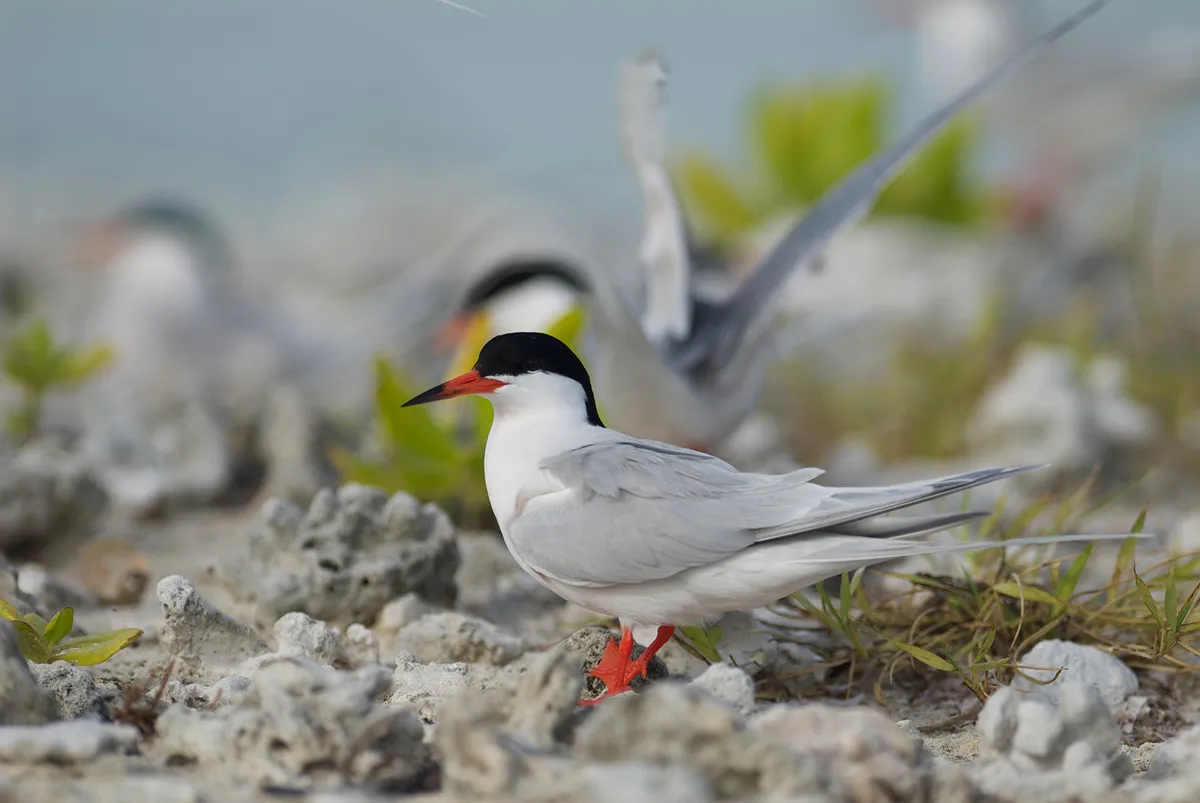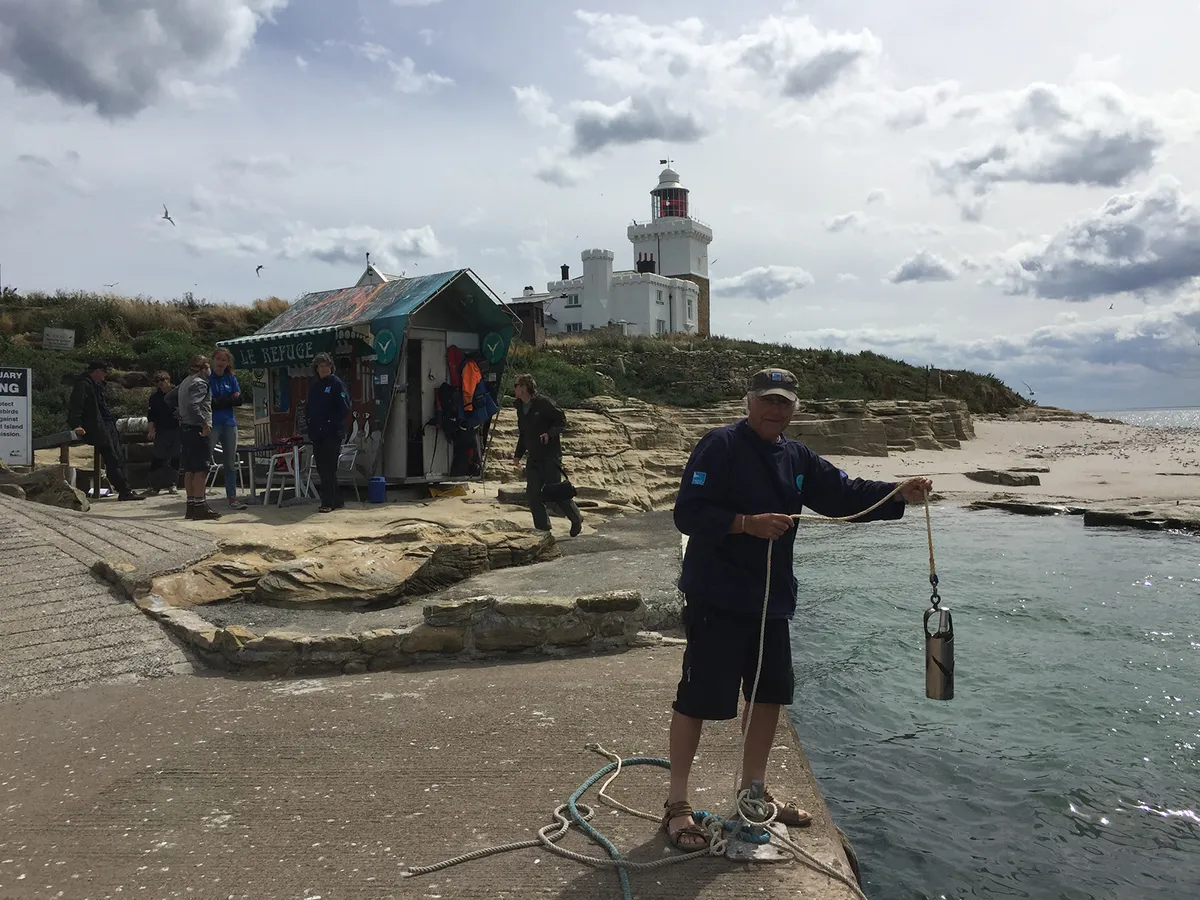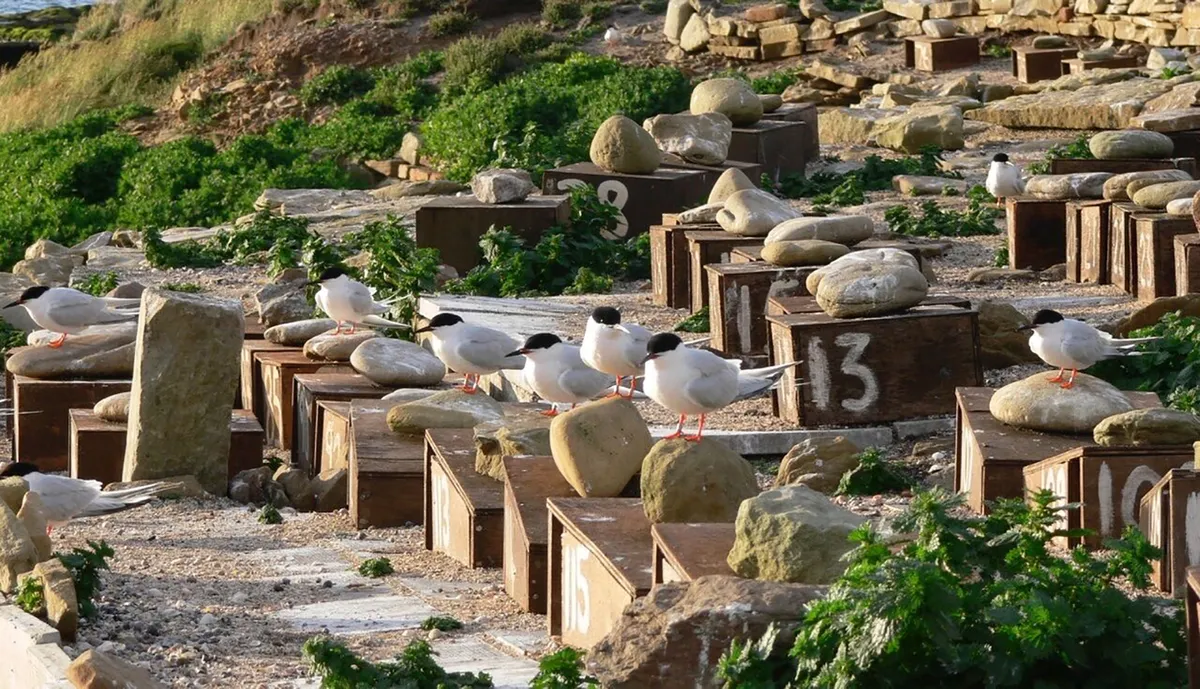Formerly ubiquitous across the British Isles, the roseate tern has experienced large population declines, almost vanishing at the hands of human hunters, habitat degradation, and animal predation. Now only one breeding colony remains in the UK, on Coquet Island, off the Northumberland coast.
However, things are looking up for the UK’s rarest breeding seabird. Having enjoyed its most successful nesting season in four decades, there are now 118 pairs of roseate terns raising chicks at their stronghold in Northumberland.

The roseate tern's change in fortune comes as a result of an 18 year long project run by the RSPB, focused on saving the endangered seabird.
Unlike other seabirds, the roseate tern prefers to nest in crevices and small holes. To increase suitable nesting areas, the RSPB has been installing nest boxes on specially built shingle terraces.

In the last three years, the project has received a boost in the form of the EU-funded Roseate Tern LIFE Recovery Project. The initiative has allowed the installation of 200 new nest boxes, as well as a special hide which has granted wardens on the island the ability to monitor and protect the nests to a greater extent. With the prospect of nesting improved, and increased shelter provided, the number of breeding pairs have now quadrupled on the island.

Paul Morrison, Warden at RSPB Coquet Island, said: “This (project) is paving the way to building a larger breeding population, which will soon reach a point where birds are beginning to nest in places beyond Coquet Island. Ultimately, we’d love to see roseate terns that have been raised here, establishing new colonies around the UK.”
The hopes of the RSPB have been realised this summer, with a pair of roseate terns fledging a chick on The Skerries, off Anglesey.
The Roseate Tern LIFE Recovery Project is set to continue until 2020, with hopes of solidifying the burgeoning roseate tern population.
